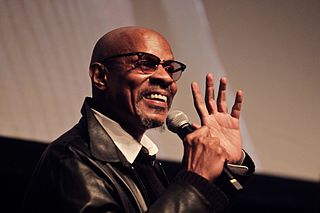A Quote by Nilakanta Sri Ram
Wisdom is not knowledge, but lies in the use we make of knowledge.
Related Quotes
Wisdom and knowledge can best be understood together. Knowledge is learning, the power of the mind to understand and describe the universe. Wisdom is knowing how to apply knowledge and how not to apply it. Knowledge is knowing what to say; wisdom is knowing whether or not to say it. Knowledge gives answers; wisdom asks questions. Knowledge can be taught, wisdom grows from experience.
You can use reading as a food for the ego. It is very subtle. You can become knowledgeable; then it is dangerous and harmful. Then you are poisoning yourself, because knowledge is not knowing, knowledge is not wisdom. Wisdom has nothing to do with knowledge. Wisdom can exist in total ignorance also. If you use reading just as a food for the mind, to increase your memory, then you are in a wrong direction. But reading can be used in a different way; then reading is as beautiful as anything else in life
WISDOM IS dependent upon knowledge. Where there is complete ignorance there can be no wisdom, no knowledge of the right thing to do. Man’s knowledge is comparatively limited and so his wisdom must be small, unless he can connect his mind with a knowledge greater than his own and draw from it, by inspiration, the wisdom that his own limitations deny him. Only God knows all truth; therefore only God can have Real wisdom or know the right thing to do at all times, and man can receive wisdom from God. Wisdom is obtained by reading the mind of God.
Everyone recognizes a distinction between knowledge and wisdom. . . Wisdom is a kind of knowledge. It is knowledge of the nature, career, and consequences of human values. Since these cannot be separated from the human organism and the social scene, the moral ways of man cannot be understood without knowledge of the ways of things and institutions.
I feel that all knowledge should be in the free-trade zone. Your knowledge, my knowledge, everybody's knowledge should be made use of. I think people who refuse to use other people's knowledge are making a big mistake. Those who refuse to share their knowledge with other people are making a great mistake, because we need it all. I don't have any problem about ideas I got from other people. If I find them useful, I'll just ease them right in and make them my own.
Data isn't information. ... Information, unlike data, is useful. While there's a gulf between data and information, there's a wide ocean between information and knowledge. What turns the gears in our brains isn't information, but ideas, inventions, and inspiration. Knowledge-not information-implies understanding. And beyond knowledge lies what we should be seeking: wisdom.
Opportunism towards knowledge is a utilitarian demand that knowledge must be immediately practical. Just like with sociology where we hope its purpose is to serve society, however, the true purpose of sociology lies in its impracticality. It cannot become practical or else it loses its meaning. Perhaps we should learn a different kind of knowledge: the knowledge to question knowledge.
There is oftentimes a great deal of knowledge where there is but little wisdom to improve that knowledge. It is not the most knowing Christian but the most wise Christian that sees, avoids, and escapes Satan's snares. Knowledge without wisdom is like mettle in a blind horse, which is often an occasion of the rider's fall.
































